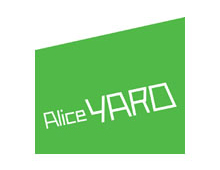DW vs VSN: addendum
Today's Caribbean Magazine programme on the BBC Caribbean Service runs an interview with Derek Walcott, in which he talks (briefly) about "The Mongoose" , his anti-Naipaul poem that has made headlines around the world (the Walcott segment starts about three and a half minutes into the audio file). At one crucial point, the sound quality is poor--as if he started speaking before the microphone was properly pointed his way--but it sounds as if Walcott is saying something like, "The poem is not very good--but it's abusive enough for what I wanted."
Of course, I could be mishearing. But I think most people who heard Walcott read "The Mongoose" at Calabash--or listened to an audio recording after the fact, or read some of the lines transcribed--must agree that, craft-wise, this is very far from Walcott at his loftiest. As a friend of mine remarked that afternoon in Treasure Beach: "It sounded like something he wrote on the back of an envelope over breakfast." The truth is, coming from an absolute master of poetic technique, "The Mongoose" does seem dashed off, at best. Discussing the Walcott-Naipaul "spat" with a friend via email earlier, I even found myself suggesting that Walcott had deliberately written a bad piece of verse, as a way of heightening the insult to Naipaul. Far-fetched?
More certainly, "The Mongoose"--and the choice comments the two writers have exchanged over the years--do fall squarely into a very Caribbean tradition of (male) public sparring. Interviewed a few days ago by the BBC, Naipaul's biographer Patrick French pointed out that Naipaul and Walcott both grew up listening to calypso, and their barbs do resemble the picong--sharp, insulting comments--traditionally traded by duelling calypsonians. Colin Channer similarly compared them to the dancehall rivals Beenie Man and Bounti Killa. There is definitely an element of performance about their rivalry, an element of theatre--with West Indian literature as their stage. (And a fortnight before Calabash, I imagined the two literary eminences in a stage performance of a different kind.)
Naipaul has thus far declined to comment on "The Mongoose", but Walcott's ire will perhaps be further stoked by the publication of the American edition of A Writer's People (lagging six months behind the British). Reviews are appearing in the US press even now. My eye was caught today by this one, written by David Rieff for the New York Times. I rather liked this passage, especially its concluding phrase:
Is there really an essentially English way of seeing and an altogether different Indian way of seeing, as Naipaul asserts in "Looking and Not Seeing: The Indian Way," the first of the book's two chapters on India, part reminiscence about his family's roots, part portrait of Gandhi? And are there also, as Naipaul suggests in pages on his native Trinidad, still other ways, one black, the other immigrant Indian? One may question Naipaul's premise, but it in no way negates that he is a very great writer. And even if, in this book, his oddly skewed and more than a little self-referential views take up too much space, his work over the past half-century entitles him to those views, especially since they may have been the fertile mistake from which his best writing has emerged.








1 comment:
'The Mongoose' is not only not far from Walcott at his loftiest, it is far from Walcott at his ablest. As Popean satire -- which is what he aims at -- it falls so far short of 'The Spoilers Return' that one wonders if Walcott is approaching second childhood.
Post a Comment